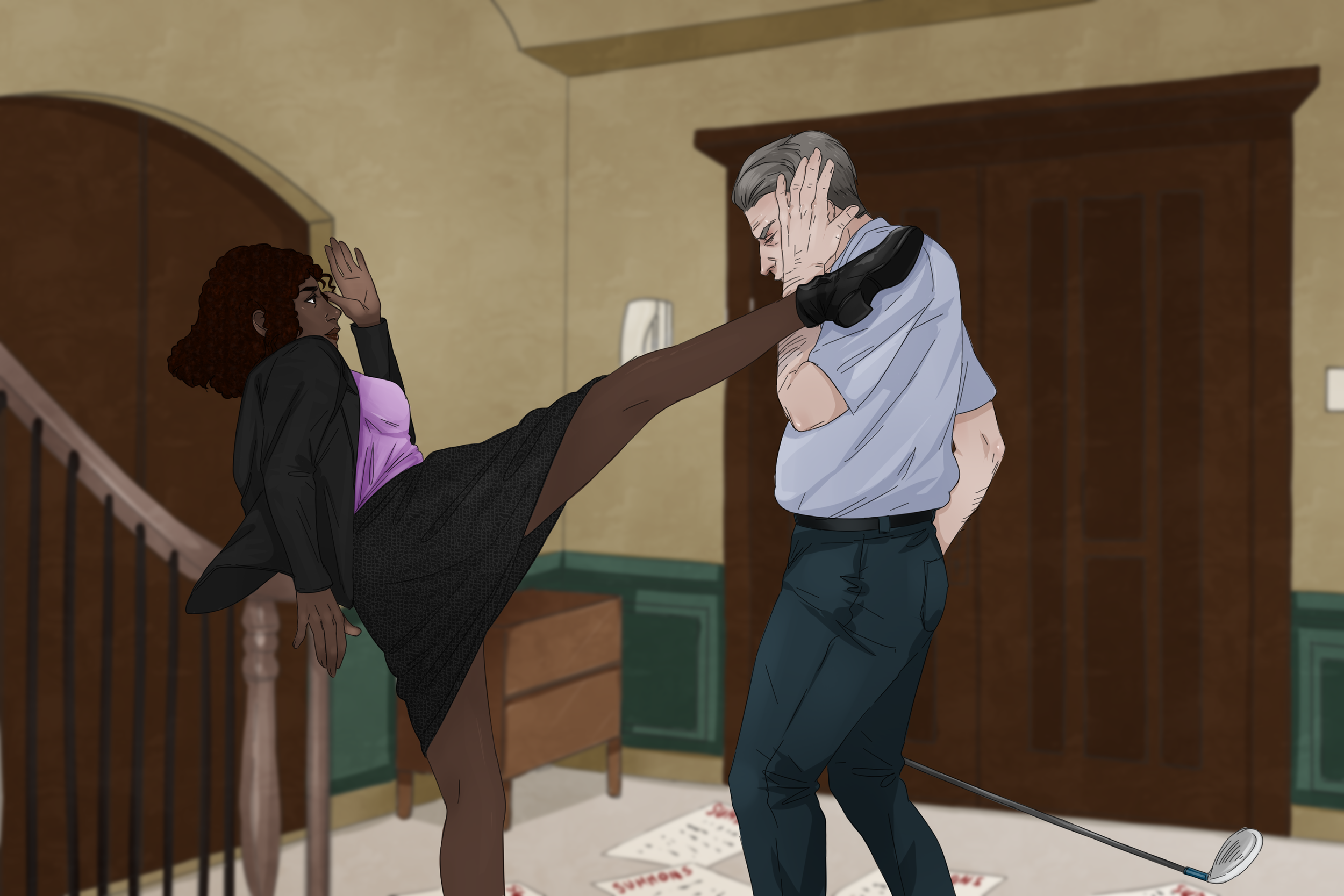LISTEN
Ida Mae Johnson, known to some only as Sister Ida Mae, began singing in her church choir over 60 years ago. As her unique style began to develop through years of singing Gospel, Ida Mae began to sing blues and soul. After some of her music became known outside local venues, she became Sister Ida Mae for two releases under her contract with Checkerboard, a subsidiary of Chess Records. Due to dramatic personal difficulties with her family, Ida Mae wanted to return to creating music as Ida Mae Johnson. The studio was not prepared to support her in this change, so Ida Mae struck out on her own, having fulfilled her contractual obligation.
Get Out of My Way (Samantha’s Song) is the first release from a set of new originals by Ida Mae Johnson. Same Old Blues, a single, and the name of this first release of originals from Ida Mae in over 30 years, is a compilation and collaboration between Ida Mae, her longtime bassist Reggie Phillips and other artists Ida Mae felt shared a perspective. Besides speaking to proposed changes that haven’t been made real in the United States, songs like Get Out of My Way speak directly to Ida Mae’s personal life.
““Seems I’ve been singing the blues all my life, and I know the blues - they are a musical expression of heartfelt emotion, something you feel deep within your soul. And, I love the blues. There are, however, only a few tracks on this release which speak exclusively to that tradition. The songs here come from the soul too, come from emotion, but, they also come from someone with a slightly different perspective and a desire to embrace change and the new. Stepping a bit more soulful, a bit more thoughful to a new voice as I see my time grows short. The style is a little different and I’ve welcomed new voices to join me, to allow new styles to meld with mine - if the message is right, the style is less important. I need to take a moment to introduce these artists whose talent will hopefully be recognized and they will be successful - Daniel (Melo Tripp) Washington, featured on both Same Old Blues and (Aint No) New Paradigm; Sarah Coix, whose voice brought life to a song I wrote, (Ain’t No) New Paradigm, but felt needed a different voice, Harley Gringas who brought bass and more, and Ben Bellero whose talent goes beyond the voice and guitar he added. I hope people who have listened over the years will allow, perhaps even welcome, some change, and new listeners will find a connection.””
Get Out of My Way (Samantha’s Song) and Same Old Blues now available on Spotify, Amazon Music, Apple Music, Napster and more. . More singles will be released over time as some tracks are still being finalized by Reggie Phillips
GALLERY & MUSIC
GET OUT OF MY WAY (SAMANTHA’S SONG)
Get Out of My Way (Samantha’s Song) was written by Ida Mae as both a tribute to her daughter Samantha’s strength and as a mother’s plea for Sam to move beyond the darkness of the multiple traumas she had experienced. Ida Mae wanted Sam to step away from the coldness, cynicism, anger, and pain she had wrapped herself in, to accept the fact she possessed a psychic gift, and to allow her heart and spirit to experience some of the light present in the world by connecting with people in ways that were other than transactional. Char McAllister’s powerful and dynamic vocals and sense of where to edit the original contributed greatly to the final song. Jalen Little, also known as Obs3rve, contributed the keyboards and other elements that gave the song the raw, gritty feeling that Ida Mae would have appreciated for the song.
SAME OLD BLUES
Same Old Blues is a song that started as a poem about racial injustice, and I quickly found its lyrical quality appealing for a song that Ida Mae Johnson would write as one of her last songs, as she wanted to create songs that would be lasting and meaningful. The influence of Char McAllister in feeling the song was reminiscent of Billie Holiday’s Strange Fruit, as well as the spoken word sections by Daniel “Melo Tripp” Washington, made the song one that Ida Mae would have been proud to call her own.
(AIN’T NO) NEW PARADIGM
(Ain’t No) New Paradigm was written in one of Ida Mae’s moments of frustration with the judgment she saw in the world regarding everything from racial and ethnic background to sex and sexual identity. For Ida Mae, who started out singing gospel in a church, initially adopted the stage name Sister Ida Mae when she became a blues singer, the spiritual aspects of life were important. Especially seeing Christians, who seemed to feel it was their place to condemn lifestyles they didn’t understand, she sometimes told Sam, was disheartening as they appeared to forget Christ’s one true commandment. Sam’s trauma at the hands of a Baptist minister, and the church’s unwillingness to take serious action against the minister, caused Ida Mae to break from the church, but not from her spirituality. The song speaks to her desire to see real change in the world, to see a world experiencing a paradigm shift to more humanity, compassion and empathy for all God’s creatures. She wanted to bring new talents to the music, to make this song a blending and so stepped back allowing Daniel “Melo Tripp” Washington (vocals), Sarah Coix (vocals and writing), and Ben Bollero (guitar and vocals) to shape the song, to create that blend of musical styles.




